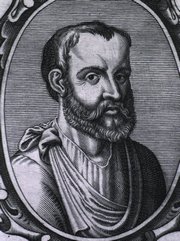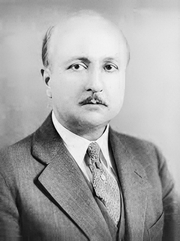This article is part of the series "A Moment in History" where we honor those who have contributed to the growth of medical knowledge in the areas of anatomy, medicine, surgery, and medical research.

Galen of Pergamum
Galen of Pergamon (129AD - 200AD). A Roman physician of Greek origin, Galen is a seminal character in Medicine and Physiology for the ages. He has been known as Galen, Galenus, Aelius Galenus, Claudius Galenus, Claudius Clarissimus Galen, and Galen of Pergamus. He was born in 129 A.D. in a Roman-Greek community in Pergamum (today's Turkey). As a very young man, he studied Medicine at the Pergamum temple of Asclepius. After traveling for additional studies, Galen obtained the appointment of "physician to the gladiators" back at this hometown of Pergamum.
The post required of him to study and develop hygiene, preventive medicine, as well as dealing with the gladiator's injuries. The horrible wounds allowed him to observe and study human anatomy and develop incredible skills at treating battle wounds. Galen traveled to Rome, where he was appointed Physician to the Emperor Marcus Aurelius.
Galen performed human and animal anatomical dissections, writing over 300 medical, pharmaceutical, and philosophical treatises in Greek, many of which were translated into other languages, especially Latin and Arabic.
Even though most of the original books were lost, the translations and interpretations of Galen's work have survived until today. His teachings and dictums were considered undisputable for over 1,500 years. In fact, in Medieval times and early Renaissance doubting Galen's teachings was considered heresy!
Galen's name is preserved in the eponymical "Vein of Galen", the great central cerebral vein.
Sources:
1. "Claudius Galenus of Pergamum: Surgeon of Gladiators. Father of Experimental Physiology" Toledo-Pereyra, LH; Journal of Investigative Surgery, 15:299-301, 2002
2. "Galen: history’s most enduring medic" Tan, SY; Singapore Med J 2002:3 (43):116 –117
3. "Galen and His Anatomic Eponym: Vein of Galen" Ustun, C.; Clinical Anatomy 17:454–457 (2004)
Original image in the public domain, courtesy of the National Library of Medicine



